- Home
- Muriel Spark
The Mandelbaum Gate
The Mandelbaum Gate Read online
Muriel Spark
The Mandelbaum Gate
Part One
1. Freddy’s Walk
Sometimes, instead of a letter to thank his hostess, Freddy Hamilton would compose a set of formal verses — rondeaux, redoubles, villanelles, rondels or Sicilian octaves — to express his thanks neatly. It was part of his modest nature to do this. He always felt he had perhaps been boring during his stay, and it was one’s duty in life to be agreeable. Not so much at the time as afterwards, he felt it keenly on his conscience that he had said no word between the soup and the fish when the bright talk began; he felt at fault in retrospect of the cocktail hours when he had contributed nothing but the smile for which he had been renowned in his pram and, in the following fifty years, elsewhere.
‘Oh of course, Freddy Hamilton. Everyone loves old Freddy my dear; Freddy’s sweet.’
Freddy, of so many British consulates throughout his subdued, obedient career, would have been touched to hear it; he would have smiled. He did not really want to excite any sort of passion in his friends, or linger in their minds under some inflammable aspect. A very boring guest or a very entertaining one could provoke all sorts of undesirable feelings in people — revulsion, heart-quickenings, murderous attachments, the sort of emotions that had always led to trouble at school and university, and they led to international incidents as well.
He liked to get his verses off quickly so that there should be no apparent sign of effort on his part. As he walked through the amazing alleys of the Orthodox Quarter of Israel’s Jerusalem which teemed so dangerously close to the Mandelbaum Gate, he started thinking of a triolet in his long-practised manner to catch the next day’s Foreign Office bag into Jordan. Freddy had just come through the Gate. He had diplomatic immunity and so was permitted to pass through the Gate every week-end from Israel into Jordan and back again; from Jerusalem to Jerusalem. Few people passed from Israel into Jordan; there were difficulties, and for Europeans a certificate of baptism was required. Foreign diplomats were not allowed to pass by motor-car, which was understandable, as papers and bombs might be concealed in a car.
Freddy carried his week-end luggage — a zipper-bag — and took his usual route into the New City. It was the hottest day so far of 1961. He had refused the taxi-cab that waited at the Gate; he hated taking taxi-cabs anywhere in the world; he felt morally against the tips, as all his uncles before him had felt. Excepting, of course, one uncle, the one who had messed up the money in the thirties and absolutely ruined the family, and who had not felt strongly against giving away tips to cabbies and so on. As Freddy turned a corner he came into collision with a tiny dark-eyed boy with fluffy side-hair falling down his cheeks, too fine as yet to be formed into shining ringlets like those of his male elders among the Orthodox sect. The child’s nose bumped into Freddy’s knee, and Freddy took him by the hand to steady him out of his bewilderment. A bearded, befrocked old man with a very large face muttered in Hebrew to the infant, who had already regained his bearings and was busy studying Freddy from head to feet. A woman of unguessable age, wearing lots of black clothes, snatched the child away, and he trotted off, his legs in their long woollen stockings moving like swift shuttles to keep up with his mother, but he still craned his head round wonderingly at Freddy. The woman scolded the child meantime, evidently trying to impress on him the undesirable nature of Freddy. Freddy walked on behind the heavily garbed pair, feeling decidedly in the wrong for having touched the child’s hand; they had probably taken him for a modern Jew, one of the regular Israelis of whom this sect disapproved perhaps more heavily than they did of the honest unclean foreigner. Well, thought Freddy, to continue …
… would have preferred
To make my grateful feelings heard,
But every time articulate
Scarcely a word.
It was not a triolet after all. Joanna, his hostess on the other side, had been extremely agreeable to him since his posting to Israel. He had spent three week-ends in her cool villa, and she loved to have these bread-and-butter verses. There would have to be an additional stanza, perhaps two. Joanna was to visit him over here in Israel; she had not yet been to Israel. He would have to remind her about her visa, and tell her how best to make the crossing. It was not a triolet after all, but a form of rondeau. There was the business of Joanna’s getting a visa, and he would meet her on this side of the Mandelbaum Gate. The intensity at the Gate was quite absurd. One could understand the border incidents where soldiers would flare up an incident suddenly and unaccountably. But there at the Gate the precautions and suspicions of the guards were quite absurd. No Israeli money allowed into Jordan, no Israeli postcards, the Jordanian police almost biologically unable to utter the word ‘Israel’. The Israeli police were inordinately dramatic:
‘Safe crossing,’ they would say as one left the emigration hut. The Israeli porter would run and dump one’s baggage half-way and run for the life of him back to his post. The Jordanian porter would wait till the path was dear; he would run the few seconds’ space to pick up the bags and run for the life of him back to his post. They dramatized everything. Why did people have to go to extremes, why couldn’t they be moderate? Freddy bumped into a man in European dress, rushing out of a shop as they all did. The man said something in Arabic. Freddy had thought he was a Jew. You couldn’t tell the difference sometimes. Some of them had extremely dark skins, almost jetters. Why couldn’t people be moderate?
It was not a triolet after all, but a sort of rondeau. Freddy turned up an alley. Another child, a girl, bumped into him in the narrow, crowded street. This time he did not put out a guiding hand, and she slipped away with the subdued expression of the children of this quarter, quite unlike the vivacious young of the regular Israelis. Freddy was rather sorry for the boys with their sausage side-curls and black knickerbocker rig-out, especially those adolescent boys who walked in a goody-goody way, by twos and threes. It must be hell for them, he thought, to be so different from the rest of the country, especially if they ever want to break away. He had felt sorry for the Arab boys on the other side —underfed, driving their mangy donkeys, thin, and in rags. He was moved to pity for all young boys, on the whole, recalling the term-times of his youth. He was convinced that the boys with ringlets were going through the same sort of hell, which was the only sort Freddy knew. The ringlets, like the Gate, were quite absurd.
‘Quite absurd!’ On the strength of this phrase he had struck up friendships all over the place. He was accustomed to exotic sights and squalid smells, narrow oriental streets, and people who went to extremes, it was all part of the Foreign Service. But outside of the Embassy, and even inside it, he never really felt at ease with chaps until sooner or later they remarked that the place was quite absurd.
… feelings heard,
But every time articulate
Scarcely a word.
But you have far too long deferred
Your visit to the Modern State,
So choose and name the cheerful date.
Joanna, I can hardly wait.
To meet you at the quite absurd
Mandelbaum Gate.
He was approaching the end of the Orthodox Jewish quarter, and had turned into a street at the end of which rattled the modern state. There, small shops burst their sides with business, large cars streaked along the highway, and everywhere the radio sets told the news in several tongues ranging from Hebrew to that of the B.B.C., or attacked the hot air with oriental jazz. Up there at the end of this orthodox street, it was said, the Orthodox Jews would gather on a Saturday morning, piously to stone the passing motor-cars, breakers of the Sabbath. And across the street, streamers stretched from building to building, bearing an injunction in Hebrew, French and English:
&
nbsp; DAUGHTERS OF ISRAEL, OBSERVE MODESTY IN THESE STREETS!
This, Freddy assumed to be for the benefit of any tourist-woman who might, for some mad reason, wish to walk in this Orthodox Jewish quarter wearing shorts or a low-cut sun dress; the local women themselves needed no such warning, being clad and covered, one way and another, all over.
For the time being Freddy had been placed in rooms in a Jerusalem hotel while waiting for an Embassy flat to fall vacant. He was in no great hurry for the flat, preferring hotel life where one need not mix, need not entertain one’s colleagues, and could generally escape. His colleagues at this posting seemed a bit in-tense and know-all; they were on the young side and had not yet settled down. Freddy noticed, crossing the street, a young woman who was at present staying at his hotel, a Miss Vaughan. She was accompanied by a tall, intellectual-looking Jew. Freddy put down his bag in the hot street. He wanted to be specially civil to Miss Vaughan, having struck up her acquaintance in the cool leafy courtyard of the hotel one evening over two long drinks, and having then, on another occasion, inadvertently said the wrong thing; whereupon Miss Vaughan had felt for his embarrassment.
They crossed over to him where he waited on the kerb, and inquired if he had enjoyed his week-end. He had once before, very briefly, met her companion, a teacher of archaeology, Dr Saul Ephraim of the Hebrew University, who was acting as Miss Vaughan’s guide. He had turned out to be amiable in the surprising way of the Israeli intellectuals; it took one by surprise because one did not expect a violin with its strings taut and tuned for immediate performance to be suddenly amiable. Dr Ephraim spoke a slightly American tone of English, suddenly amiable and easy as if from some resource that had been waiting under his skin for an encounter with Freddy. He wore an open-necked shirt and flannels, his neck lean and long-muscled. Freddy chatted as he observed these things, telling of his week-end in Jordan: ‘I’ve got some charming friends over there.’ Ephraim would be in his young thirties. He was anxious to hear news of Jordan.
‘Haven’t you ever been there?’ said Freddy.
‘Not since the war.’
‘Of course, not since the war.’ To Ephraim ‘the war’ was the war of 1948.
‘It’s absurd,’ said young Dr Ephraim.
An unloading of water melons began to take place close to them. Freddy had once been hit by the corner of a crate while passing an unloading operation at Covent Garden. He was nervous, and moved the couple aside along with himself.
‘Both of you come and join me for a drink when you’ve finished,’ said Freddy then, lifting up his bag.
Miss Vaughan was about to say something when an old bearded man out of the many, with small ancient eyes, approached them and spoke to Dr Ephraim in guttural Yiddish. Ephraim answered some brief thing, using his hands and shoulders to throw off the subject to the air. The old man spoke a few more words and moved away, muttering and glancing backward at Miss Vaughan.
What did he say?’ said Miss Vaughan.
‘He said, “Tell your lady-friend to dress herself properly in these sacred streets as they have always done before.”‘
Freddy looked at Miss Vaughan to see how she was dressed. She was wearing a harmless blouse, sleeveless, and a dark skirt. He looked up at the admonishing banners and smiled his smile. He smiled again at Miss Vaughan, who stood with her sharp features and prim grey and black hair drawn back, looking less intense than Freddy feared she really was. It occurred to him that by contrast with Ephraim she would be in her late thirties. She was still questioning Dr Ephraim about his conversation with the old man. ‘And what did you say to that?’
‘I said, ‘Well, it’s a hot day.” And he replied, ‘Well, it was a hot day two thousand years ago.”‘
Freddy was glad he had met the couple, for he was always lonely after his week-ends on the other side. He pushed his way up the streets among the loitering mystics and beggars whom the Israelis in general abhorred, being bumped into quite often by the women who inevitably darted out of the shop doors with their purchases and their children, without looking first to right or left. He thought he might ask young Saul Ephraim to recommend him a Hebrew teacher if Miss Vaughan remembered to bring him back to the hotel for a drink. One ought to learn some modern Hebrew to get along in this country. Ephraim might take on the job himself, but Freddy, reflecting that this was highly improbable, was instantly annoyed with himself for thinking it in the first place. One did not meet many Israelis, only the officials and so on, but of course one had not much time. The weekly visits to the other side took up his free days. Dr Ephraim would be thirty-one or thirty-two. Abdul Ramdez, the life-insurance agent who kept trying, without success, to sell Freddy a policy, but who was amusing, had undertaken to give him lessons in Arabic. Ramdez would be in his middle twenties. One had to be careful about one’s teachers of Hebrew and Arabic; here on the spot they were all apt to get intense. Ramdez was an Armenian Arab, or so he claimed.
A chanting of children’s voices came from an upper-storey window as Freddy pushed up the street towards modernity and his hotel. This upper storey was a school; it was always in full chant when he passed, for the children of this sect learned their lessons, all subjects alike, by plaintive rote, singing them out in Hebrew. This always fascinated him, at the same time as it put him off his stroke, for usually, when he passed the spot, he was thinking of his thank-you verses. At present his mind was already on the third stanza of his current piece, so that Joanna could be suitably and gracefully reminded to get a visa and make sure that she stated she was coming on a pilgrimage to the Christian shrines.
But he could not get his rhythm right against the chanting of these children of the Orient, even after he could hear it no longer and was out among the speedy wide streets of people and motor traffic in the modern city. All the way back to his hotel, when he was really too hot to bother and his thoughts were mere heat-waves, the chant went on at the back of his head, accompanied, as always on these return journeys, by an assertive counter-chant rising spontaneously from something indomitable in Freddy; and so, pitting culture against culture, the metrical precepts of Samuel Taylor Coleridge chanted themselves lovingly round his brain:
Trochee trips from long to short;
From long to long in solemn sort,
Slow Spondee stalks; strong foot! yet ill able
Ever to come up with Dactyl trisyllable.
Iambics march from short to long: —
With a leap and a bound the swift Anapaests throng;
One syllable long, with one short at each side,
Amphibrachys hastes with a stately stride: —
First and last being long, middle short, Amphimacer
Strikes his thundering hoofs, like a proud high-bred racer.
Even in his bath, when he was thinking of other things, Coleridge’s lines continued to churn in the background — even when they had chased away the Hebrew plain-chant; and even, although he was scarcely aware of it, when he sat out in the small green courtyard of the hotel to await Miss Vaughan and Dr Ephraim. He wanted to be specially agreeable to Miss Vaughan, having put his foot in it last week on their third or fourth meeting. Freddy hated more than anything the thought that he had hurt someone’s feelings in a direct encounter. He hoped she would bring the archaeologist with the lean brown neck. The afternoon was fading, and he tapped silently with his fingers on the wicker arm of his chair and gazed up through the lofty trellis at the cooling light.
Trochee trips from long to short;
The waiter brought his drink and Freddy dwelt for a gay and not indelicate moment on the young Israeli, and he felt like Horace in the Ode, demanding simple service under his lattice vine. Persicos odi, puer….
From where he sat he saw Miss Vaughan come into the hotel entrance, alone. She moved towards the staircase but glanced towards the terrace. Freddy rose and raised an arm in a welcoming way, and she turned and joined him.
‘Dr Ephraim couldn’t manage as it was rather late and his family were expecting h
im. I ought to go and change.’
What will you drink?’ said Freddy. His first meeting with Miss Vaughan now came back to him, fused with subsequent meetings here in the green courtyard. He saw them all with that total perceptivity of his which might have made a poet of him, given the missing element. His first impression had been of a pleasant English spinster; she was a teacher of English at a girls’ school; she was on a tour of the Holy Land; Freddy had discussed with her the dear subject of formal English lyrical verse; he had, on another occasion, confided in her that he was compiling an anthology in his spare time, and had before the war published a volume of his own occasional verses. She had responded in a detached sort of way, which was what one liked. She was edgy; she wore on her engagement finger a ring of antique design embedded with a dark-blue stone; but for some reason Freddy had not felt that the ring referred to an engagement to marry anyone; such things were not unaccountable in an English spinster; it was probably somebody killed in the war.
Now, sitting with her near the same spot as when they had first spoken three weeks ago, he was filled with a sense of her dangerousness; he was obscurely afraid. He wished the young archaeologist had come with her.
But he was obliged to be particularly civil to Miss Vaughan. He fingered the wicker chair.
With a leap and a bound the swift Anapaests throng …
Last week he had joined her out here after dinner. The State of Israel had that day sent up its first guided rocket. He remarked that there seemed to be a lot of rejoicing going on in the streets, and one of them suggested going out later on to watch the children dancing. The children danced in the public gardens until late every night in any case. They fell to talking about politicians and the Bomb.

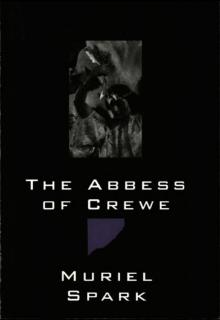 The Abbess of Crewe: A Modern Morality Tale
The Abbess of Crewe: A Modern Morality Tale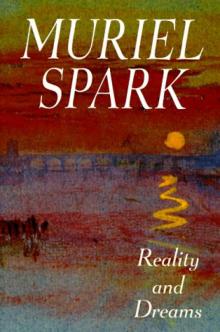 Reality and Dreams
Reality and Dreams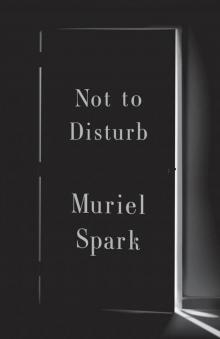 Not to Disturb
Not to Disturb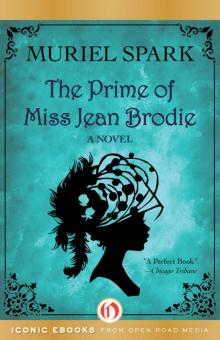 The Prime of Miss Jean Brodie
The Prime of Miss Jean Brodie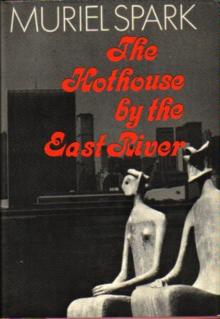 The Hothouse by the East River
The Hothouse by the East River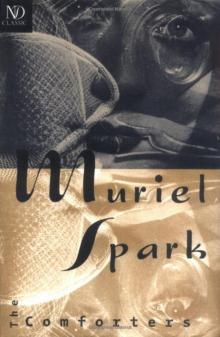 The Comforters
The Comforters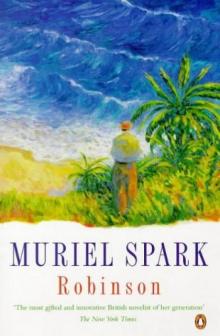 (1958) Robinson
(1958) Robinson Unknown
Unknown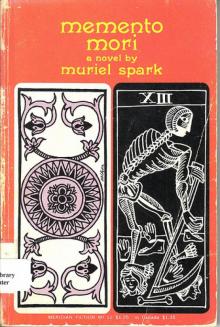 Memento Mori
Memento Mori The Finishing School
The Finishing School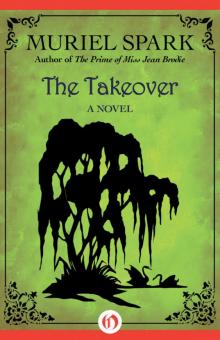 The Takeover
The Takeover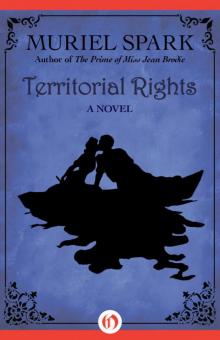 Territorial Rights
Territorial Rights The Complete Short Stories
The Complete Short Stories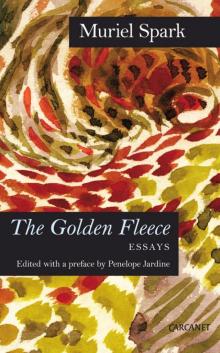 The Golden Fleece: Essays
The Golden Fleece: Essays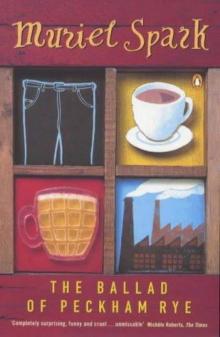 The Ballad of Peckham Rye
The Ballad of Peckham Rye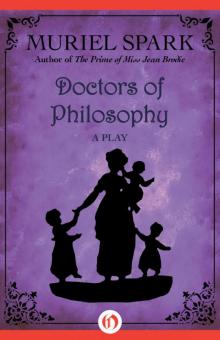 Doctors of Philosophy: A Play
Doctors of Philosophy: A Play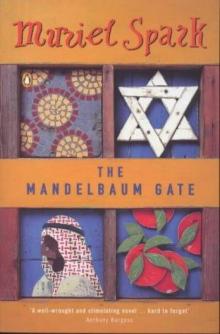 The Mandelbaum Gate
The Mandelbaum Gate Loitering With Intent
Loitering With Intent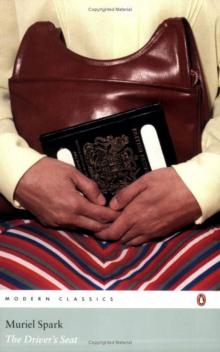 The Driver's Seat
The Driver's Seat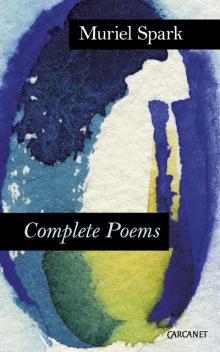 Complete Poems: Muriel Spark
Complete Poems: Muriel Spark Symposium
Symposium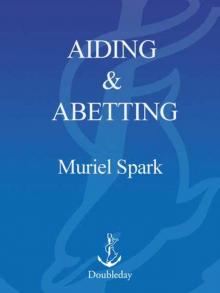 Aiding and Abetting
Aiding and Abetting The Golden Fleece
The Golden Fleece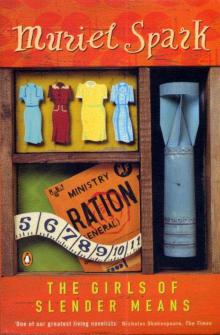 The Girls of Slender Means
The Girls of Slender Means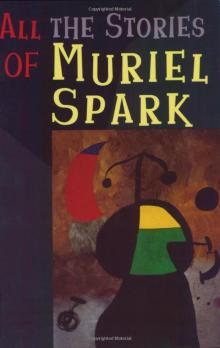 Alice Long’s Dachshunds
Alice Long’s Dachshunds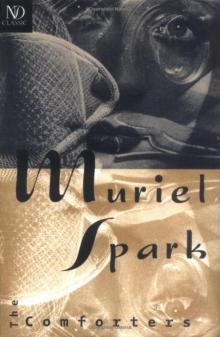 (1954) The Comforters
(1954) The Comforters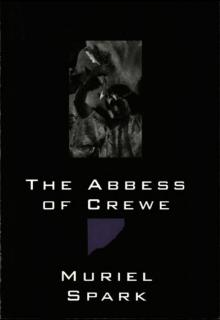 The Abbess of Crewe
The Abbess of Crewe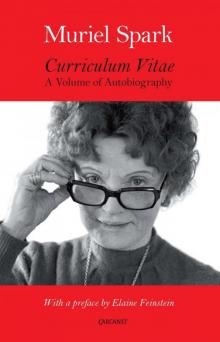 Curriculum Vitae
Curriculum Vitae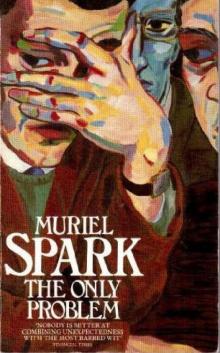 The Only Problem
The Only Problem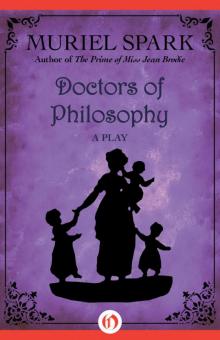 Doctors of Philosophy
Doctors of Philosophy